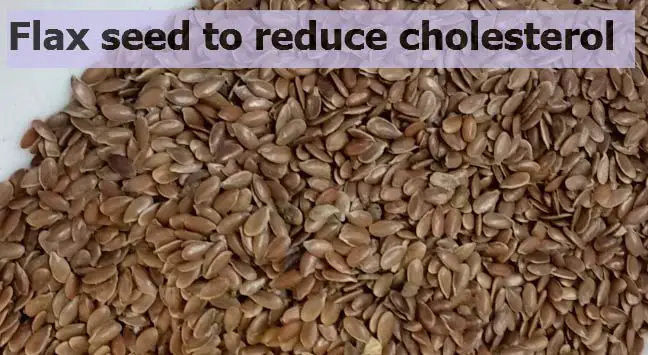
Learn how flax seed to lower cholesterol or in combination with any other cholesterol supplement.
First, as you may probably know, flaxseed is a whole grain that can be found in any health food store and n some supermarkets too. It can be sprinkled on food or is sometimes used in baked goods, such as muffins or bread.
Flaxseed contains a substance called alpha-linolenic acids. Alpha-linolenic acid is omega 3 fatty acid, similar to those found in fish such as salmon. Omega 3 fatty acid is a type of essential fatty acid, which can only be acquired from food.
Aside from alpha-linolenic acid, flaxseed is also rich in another substance called lignan, which is a type of phytoestrogen and also provides fiber.
Flaxseed and cholesterol relationship is possibly due to its fiber and omega-3 fatty acid content, which lower levels of total cholesterol and in particular, LDL (“bad”) cholesterol.
This action is effectively shown in many studies. So, in general, flaxseed can lower the total and LDL cholesterol levels; while omega 3 fatty acids in particular can help lower blood triglyceride and blood pressure.
In addition, it may play a role in keeping platelets from becoming sticky, consequently, the chances for a heart attack are also reduced.
To date, Bahram Arjmandi, Ph.D., of Oklahoma State University has conducted a study where 38 postmenopausal women were allowed to take bread and muffins fortified with added 38 grams of either ground flaxseed or sunflower daily for six consecutive weeks.
They were divided into 2 main groups. After 6 weeks, they have stopped taking the supplemented foods for 2 weeks. Then, the groups started to take the fortified foods for another 6 weeks to complete the study.
The conclusions were remarkable, where the total cholesterol has been lowered by 6.9 percent; while LDL (bad) cholesterol by 14.7 percent. However, only ground flaxseed has such effects on cholesterol because the whole flaxseed is not digestible.
Furthermore, in the same study, it was concluded that the protein responsible for heart disease was also reduced.
This shows that flaxseed and the cholesterol-lowering effect of flaxseed are real. However, probably more studies are needed to have conclusive proof of flaxseed treatment to reduce cholesterol.
If you want to include flaxseed in your diet use it moderately. There are a lot of food products that contain flaxseed such as bread, cereal, and bakery goods.
Flaxseed contains more omega-3 fatty acids by weight compared to fish oil.
However, omega-3 in flaxseeds comes in the form of alpha-linolenic, which needs to be converted to EPA (the active ingredient of omega-3 fatty acid) at the ratio of 10:1 and, therefore, the amount of conversion is limited.
But one of the major problems of fish oil is that people who take it develop a fishy “burp” that is harmless, but somewhat irritating because of a fishy aftertaste. If the aftertaste proves bothersome, flaxseed is a good alternative.
